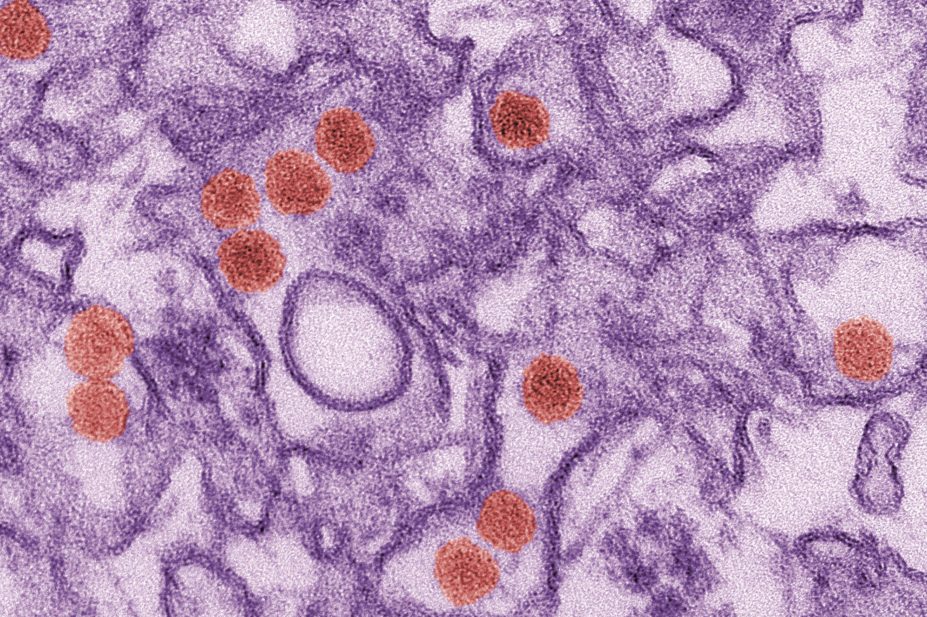
Cynthia Goldsmith / CDC
The Zika virus outbreak in Brazil and elsewhere in South America has been declared a public health emergency by the World Health Organization after it was found to be the cause of microcephaly in infants.
As a result, researchers from the United States and Brazil have used techniques applied to the development of other flavivirus vaccines to find a Zika vaccine.
In a mouse model, a single injection of either a plasmid DNA vaccine or purified inactivated virus vaccine provided complete protection from infection with Zika.
Unvaccinated mice had high levels of Zika virus replication after exposure to the virus, but it remained undetectable in vaccinated mice, which were shown to have vaccine-induced antibodies.
In Nature (online, 28 June 2016)[1]
, the researchers say that the results suggest development of a human vaccine should be “readily achievable” and clinical trials should commence quickly.
References
[1] Larocca RA, Abbink P, Peron JPS et al. Vaccine protection against Zika virus from Brazil. Nature 2016. doi: 10.1038/nature18952


